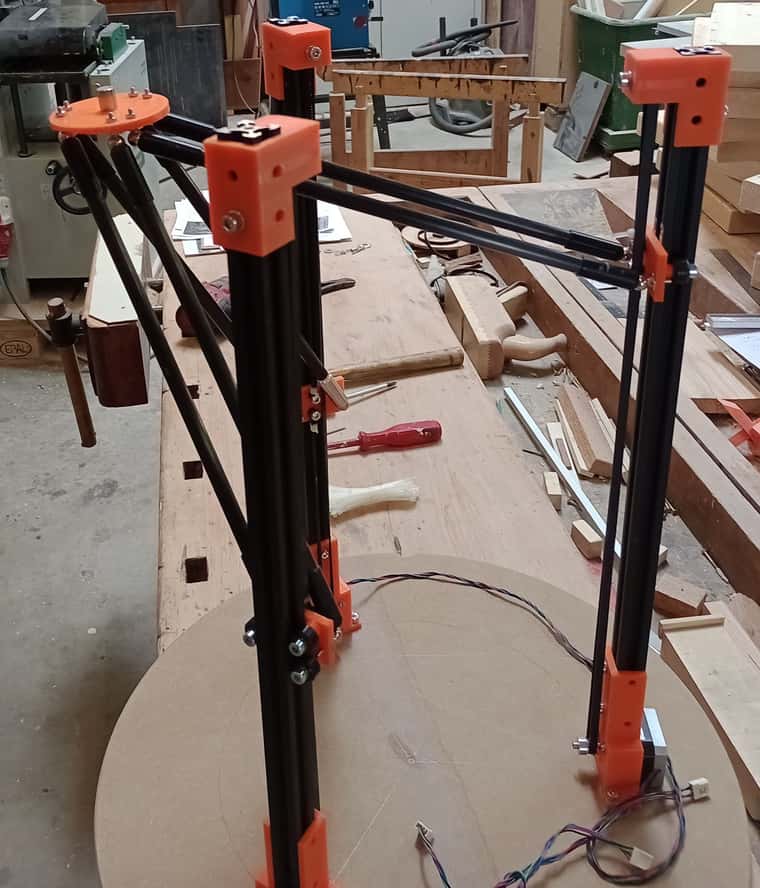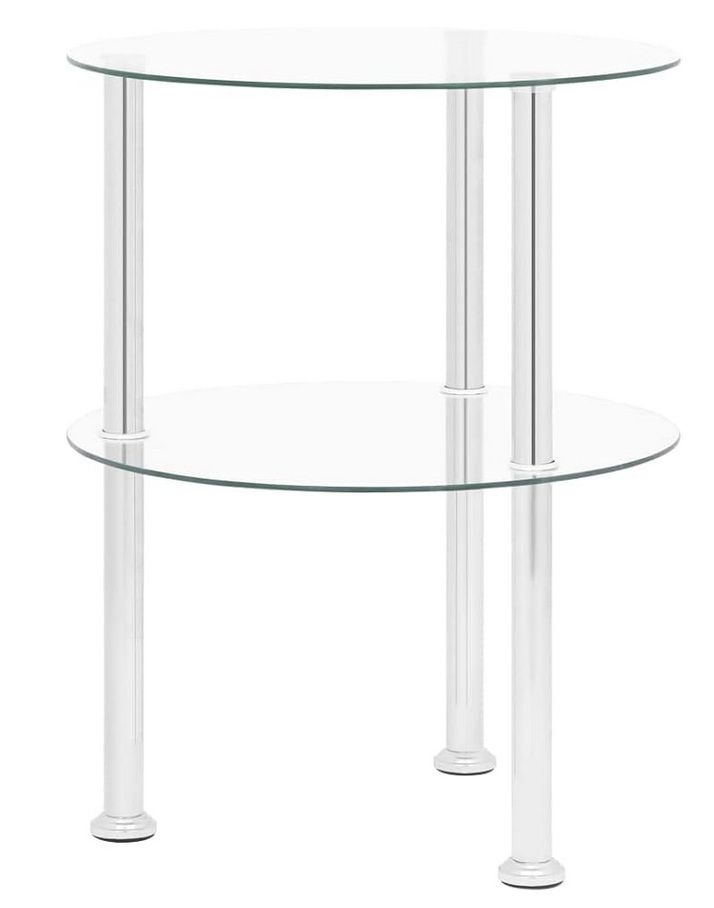Spirograph emulator with Duet2
-
@dc42 That's it! Thanks!
-
The Slim Delta is alive and I could reach areas outside of the triangle.
The problem is, how do I tell RRF that it mustn't foul the towers?
I know there are people using that for their leadscrew area and such, but I couldn't find it in the Wiki.

-
Just found out that M599 can define keep out zones. But searching for "keep out" in the Wiki gave no result...
Bad news is, it only works on Duet3 boards due to RAM restrictions.Guess I can build a few sandify patterns, that match such an odd working area, but wipe-patterns usually apply to rectangular or polar areas only
-
@o_lampe said in Spirograph emulator with Duet2:
The problem is, how do I tell RRF that it mustn't foul the towers?
As far as I'm aware there's no way for the firmware to do that. I guess you need to control that when slicing. I'd say it was rare to design a machine with the axes inside the build area.
@o_lampe said in Spirograph emulator with Duet2:
Just found out that M599 can define keep out zones.
Currently only one keep out zone is supported, and the job will be aborted with an error message if the toolhead tries to move inside that zone.
Ian
-
@droftarts said in Spirograph emulator with Duet2:
I'd say it was rare to design a machine with the axes inside the build area.
You're right, but I wanted the footprint of the table aka delta tower-triangle to be small.
I got a nice 38cm dia glasstable with a predrilled footprint of 320mm. I'll have to place the towers accordingly.

@droftarts said in Spirograph emulator with Duet2:
Currently only one keep out zone is supported
Guess, I have to write a postprocessor which takes care of three keepout zones and doesn't quit the job.
-
@o_lampe What do you plan to use to generate the drawing and erase pattern files? Maybe the keepout areas can be defined there.
You can do all sorts of stuff with post processors. I use a PERL post processor to set the speed of moves on my table. It steps through the pattern file and determines whether each line of gcode draws on the table or moves the ball along the edges. If it's edge motion, it executes it at high speed (usually 1000 mm/sec), and if it's drawing on the table it executes at a lower speed (to preserve detail in the drawing).
-
@mrehorstdmd Currently I'm using Sandify, but I can also produce gcode from .dxf files. With inkscape I could theoreticaly use any bitmap to generate patterns and I could manually drag every knot of a path out of the zones.
I used it frequently, when my K40 laser was new.I haven't thought to look elsewhere, but if others (CNC or laser scene? ) have the same problem with keep out zones, I'd be happy to know.
Is the PERL post processor open source? I'm looking for a good starting point to write my own.(open file, modify gcode lines, write new file) -
@o_lampe Here's my PERL script for dual speed operation. I used a LOT of notes to make it easy for me to modify or fix because I don't do a lot of programming and have to relearn it for each project.
This is how it is invoked:
E:\Downloads>perl -w dual_speedify_v2.pl Warning- there's no error trapping, so be careful when you answer the questions that will follow. Use at your own risk! Type the name of the sandify pattern file: 250519_01.gcode Enter the drawing speed in mm/sec 150 Enter the edge speed in mm/sec 1000 Enter the minimum X value of the pattern. 0 Enter the maximum X value of the pattern. 590 Enter the minimum Y value of the pattern. 0 Enter the maximum Y value of the pattern. 980 Enter the home position X ordinate. 590 Enter the home position Y ordinate. 0 Processing is complete. The dual speed output file is called 250519_01_9000_60000.gcode Check the output file to make sure it does what you think it will.And the attached file is the result. 250519_01_9000_60000.gcode ]
-
@o_lampe said in Spirograph emulator with Duet2:
A SCARA arm in the center would be nice, but I don't know if RRF supports the 360° working area? @dc42 @JoergS5 ?

Just wanted to bump up the question, because it would be the most hidden mechanic.
When I run the delta driven sand table, people spend more time watching the effector and trying to figure out how it works.

-
@o_lampe the current Scara implementation assumes that both the proximal and distal arms move through a limited range of angles; whereas I think the design you are looking at supports continuous rotation. So I think the answer is no.